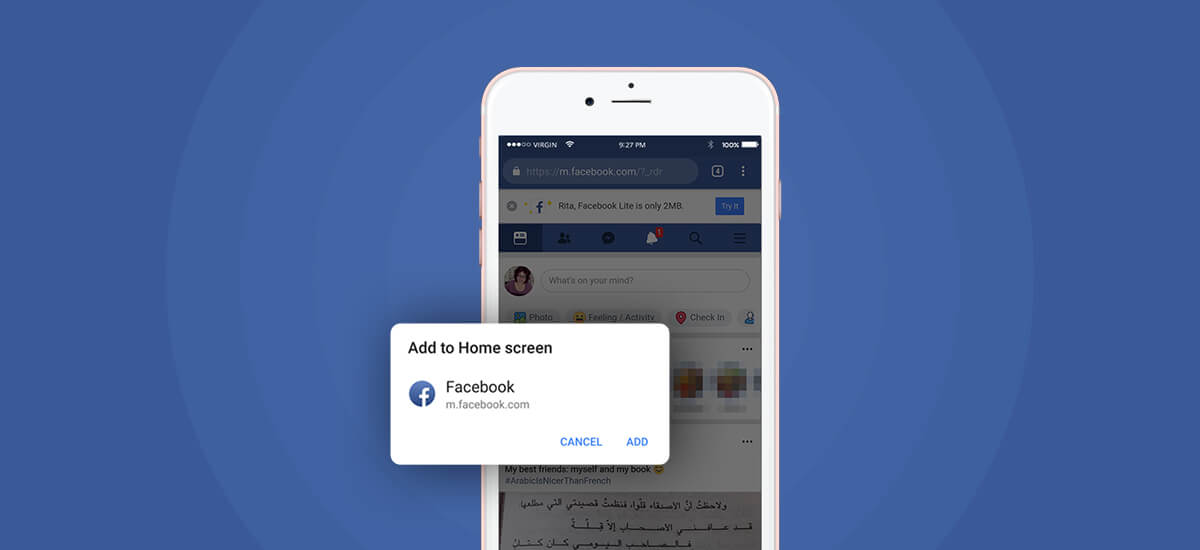Facebook Expands its Business Model to Progressive Web App
PWAs have transformed their image from a new, unsure technology to one that gives users exactly what they need – Greater Memory Space, Higher Performance, Faster in and out option.
By becoming an answer to mobile app users’ biggest problems, Progressive Web App Developmet have found a place in the business models of a number of businesses who have expanded themselves into the mobile domain. Along with a place in the service suite of the top mobile app development agencies.
The latest brand to join the PWA bandwagon is Facebook.
After seeing the groundbreaking success that brands like Uber, Tinder, Trivago etc have garnered from their adoption of the PWA apps, in terms of their conversion and engagement rate, it was about time that Facebook also expanded its business on the platform.
Going by the concept of Progressive Web Apps shared by Google – of having a slimmed down version of the app in terms of memory space that it occupies, Facebook is cutting short its native gestures and hardware contracts to complement its PWA.
There are a number of significant changes between both – Facebook Native App and Facebook PWA.
Here are the most striking ones –
- Rounded edges
The native Facebook logo is known for its square edges but with PWA, Facebook has redesigned their icon and have made round.
- The Inside Screen
Usually, when you open Facebook on a mobile browser, you get a top bar with the menu bar and top address. But with PWA, Facebook opens like an app with no top bar.
- The Obvious ‘Add to Home Screen’
Facebook PWA is still not available on all devices, but in the ones where it has made an appearance, users were shown a screen pop-up saying ‘Add to Home Screen’ to add the version on their device’s screen.
With the brand names associated with Progressive Web Apps getting bigger and famous by the day, the mobile app world is getting closer to replacing Native Apps with PWAs, fuelling the discussion of Native Apps vs Progressive Web Apps even further.
So, are we headed towards a time where Native Apps are are replaced by the cost and profit friendly Progressive Web Apps? We are not. Because there are still a number of associated limitations of PWAs like an absence of interaction with device functionalities and lesser visibility quotient that comes when you are not uploaded on the App Store or Play Store.
While on one hand, PWAs is not yet prepared to replace Native Apps, on the other, it has emerged as the profitable association of the Native Apps for businesses aiming for high conversion and active user rates.

strategies your digital product..



